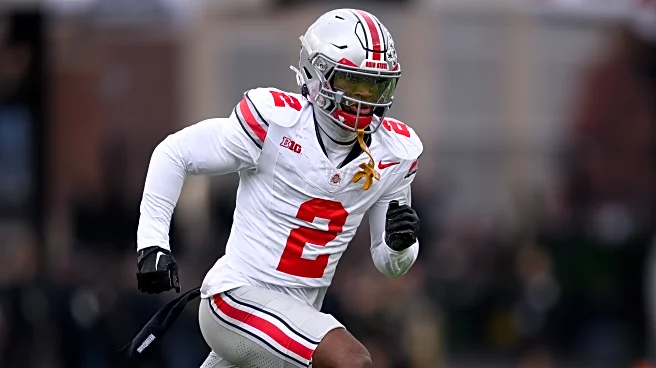Rapid Read • 8 min read
Senate Republicans are actively discussing potential strategies to accelerate the confirmation process for President Trump's nominees, which have been stalled due to Democratic filibusters. The GOP is considering several options, including changing Senate rules to reduce the time required for processing nominees or grouping them together for faster approval. This discussion comes as pressure mounts from President Trump to clear more nominees during the August recess. Senate Majority Leader John Thune has indicated that the GOP's frustration is reaching a 'boiling point' due to the slow pace of confirmations. Some Republicans, like Sen. John Kennedy and Eric Schmitt, have suggested the possibility of recess appointments, although this is unlikely given the House's current recess status. The debate over these tactics highlights the ongoing partisan tensions in the Senate regarding the confirmation process.
AD
The potential rule changes being considered by Senate Republicans could significantly impact the balance of power in the federal government by allowing President Trump to fill key positions more swiftly. This move could strengthen the administration's ability to implement its policies and influence the judiciary. However, it also raises concerns about the erosion of traditional Senate procedures designed to ensure thorough vetting of nominees. Democrats argue that bypassing these procedures could lead to the appointment of unqualified individuals, undermining the integrity of the government. The outcome of this debate could set a precedent for future administrations and alter the dynamics of Senate confirmations, affecting the legislative process and the functioning of the federal government.
If Senate Republicans decide to proceed with rule changes, it could lead to a significant shift in how nominees are confirmed, potentially reducing the influence of the minority party in the Senate. This decision may provoke strong reactions from Democrats, who could seek to counteract these changes through legislative or procedural means. Additionally, the GOP's actions could influence public perception of the Senate's role in the confirmation process, potentially impacting future elections and the political landscape. The ongoing discussions and any resulting decisions will be closely watched by political analysts and stakeholders across the country.
AD
More Stories You Might Enjoy











